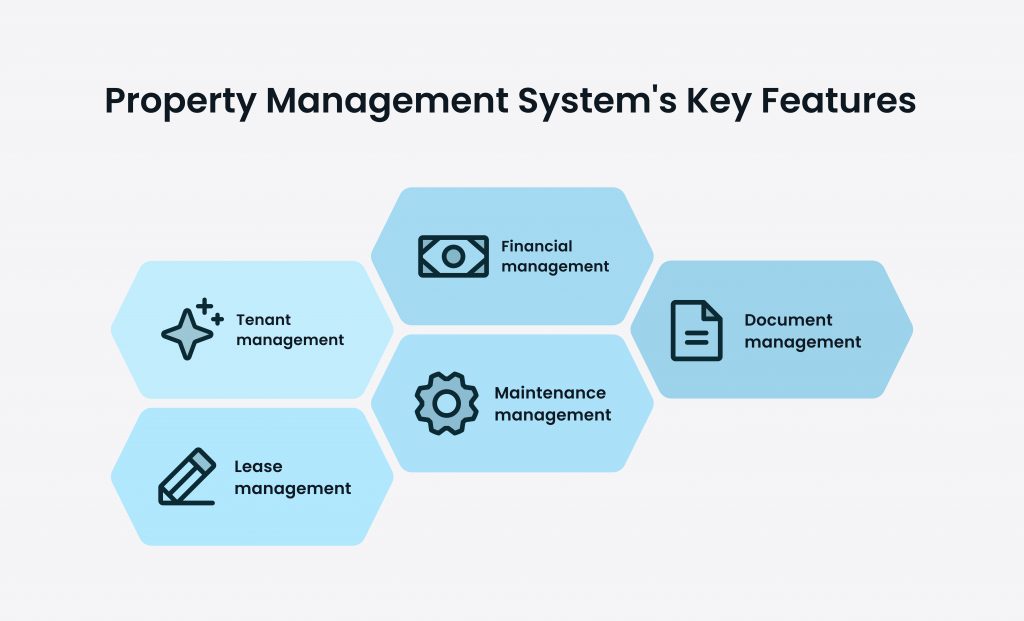We at WeSoftYou understand the importance of a well-developed property management system for businesses in the real estate industry. As a software development company with a proven track record, we have helped numerous clients build efficient and reliable property management systems tailored to their specific needs.
Understanding the Basics of a Property Management System
A property management system is a software solution designed to streamline and automate various tasks related to property management. It serves as a centralized platform for managing rental properties, leases, tenant information, maintenance requests, and financial transactions. By digitizing these processes, property owners and managers can save time, reduce errors, and improve overall operational efficiency.
Property management systems have become an essential tool for property owners and managers in today’s fast-paced real estate industry. With the increasing complexity of managing rental properties, the need for an efficient and reliable system has never been greater. These systems provide a comprehensive set of features that enable property managers to effectively oversee all aspects of property management.
Key Features of a Property Management System

A well-rounded property management system should include essential features such as:
- Tenant management: This feature allows property managers to store and access tenant information, track rental applications, and facilitate communication with tenants. With a centralized database of tenant information, property managers can easily keep track of important details such as lease agreements, contact information, and payment history.
- Lease management: The system should enable the creation, management, and tracking of leases, including lease renewals, rent increases, and lease terminations. This feature ensures that property managers have full visibility and control over lease agreements, allowing them to effectively manage lease terms and ensure compliance.
- Financial management: This feature helps property managers handle rent collection, generate financial reports, and track expenses and income related to the property. By automating financial processes, property managers can accurately track and analyze financial data, making it easier to monitor cash flow and make informed financial decisions.
- Maintenance management: A property management system should include tools for managing maintenance requests, scheduling repairs, and tracking maintenance history. This feature allows property managers to efficiently handle maintenance issues, ensuring that repairs are promptly addressed and tenants are satisfied with the property’s condition.
- Document management: This feature allows property managers to store and organize important documents such as contracts, policies, and tenant agreements. With a centralized document repository, property managers can easily access and share documents, reducing the risk of misplaced or lost paperwork.
These key features are the foundation of a property management system, providing property managers with the necessary tools to effectively manage their properties and provide excellent service to their tenants.
Importance of a Property Management System
From our experience, implementing a property management system can have numerous benefits for businesses in the real estate industry. It helps streamline operations, reduce manual errors, and enhance tenant satisfaction. By automating time-consuming tasks, property managers can focus on more strategic activities, such as growing their property portfolio and improving customer service.
Property management systems not only improve efficiency but also contribute to better decision-making. With access to real-time data and comprehensive reports, property managers can gain valuable insights into their property performance, identify areas for improvement, and make data-driven decisions to optimize their operations.
In addition, property management systems provide a higher level of transparency and accountability. By maintaining a digital trail of all property-related activities, property managers can easily track and audit transactions, ensuring compliance with regulations and reducing the risk of fraud.
Furthermore, property management systems enhance tenant satisfaction by providing a seamless and convenient experience. Tenants can easily submit maintenance requests, make rent payments online, and access important documents through a tenant portal. This level of convenience and accessibility contributes to tenant retention and positive word-of-mouth, ultimately benefiting the property owner’s bottom line.
In conclusion, a property management system is a valuable tool for property owners and managers in the real estate industry. By centralizing and automating various property management tasks, these systems improve efficiency, reduce errors, and enhance tenant satisfaction. Investing in a reliable property management system can have a significant impact on the success and profitability of a property management business.
Factors Influencing the Cost of Developing a Property Management System
The cost of developing a property management system can vary significantly based on several factors. Here are some key considerations:
Complexity of the System
The complexity of the desired features and functionalities will impact the development cost. More advanced features and integrations, such as online rent payment portals, mobile applications, and data analytics capabilities, may require additional time and resources.
For example, implementing an online rent payment portal involves integrating with payment gateways and ensuring secure transactions. This requires expertise in payment processing and security protocols, which can add complexity to the development process.
Similarly, developing mobile applications for property management systems involves designing user-friendly interfaces and ensuring compatibility across different devices and operating systems. This requires extensive testing and optimization, which can increase the development cost.
Customization Requirements
Every business has unique requirements. If your property management system needs extensive customization to align with your specific workflows and processes, it may increase the development cost. However, investing in customization can lead to a more tailored and efficient solution that aligns closely with your business needs.
Customization may involve creating custom reports, integrating with existing software systems, or implementing specific business rules and workflows. This requires thorough understanding of your business processes and may require additional development time and effort.
Furthermore, if your property management system needs to support multiple locations or different types of properties, such as residential, commercial, or vacation rentals, the customization requirements may be even more complex. This can impact the development cost as it requires building flexible and scalable architecture.
Technology and Platform Used
The choice of technology stack and platform can influence the overall cost. Depending on your requirements, you may opt for web-based systems, mobile applications, or hybrid solutions. The complexity of the chosen technology and the availability of skilled developers in that technology can impact the cost of development.
For instance, developing a web-based property management system using modern frameworks like React or Angular may require experienced developers who are proficient in these technologies. The availability of such developers and their hourly rates can affect the development cost.
On the other hand, if you choose to develop a mobile application for property management, you need to consider the development cost for different platforms, such as iOS and Android. Each platform requires separate development efforts and expertise, which can increase the overall cost.
Additionally, the choice of technology can impact the scalability and performance of the system. Using scalable cloud infrastructure, such as Amazon Web Services or Microsoft Azure, can ensure that your property management system can handle increasing data and user loads. However, this may require additional setup and maintenance costs.
In conclusion, the cost of developing a property management system is influenced by factors such as the complexity of the system, customization requirements, and the technology and platform used. By carefully considering these factors and working with experienced developers, you can develop a robust and efficient property management system that meets your business needs.
Breakdown of the Development Costs
Developing a property management system involves various cost components. Let’s delve into each of these components to gain a deeper understanding:
Planning and Designing Costs
Prior to commencing the development process, meticulous planning and designing are imperative. This phase entails comprehending your business needs, defining the system requirements, creating wireframes, and designing the user interface. The cost associated with planning and designing primarily depends on the complexity and scope of your project.
During the planning stage, it is crucial to conduct thorough research and analysis to ensure that all aspects of your property management system are well-defined. This includes considering factors such as property listing management, tenant communication, rent collection, maintenance tracking, and financial reporting.
Designing the user interface involves crafting an intuitive and visually appealing layout that enhances user experience. It requires careful consideration of color schemes, typography, and the arrangement of various elements. The design should be user-friendly, allowing property managers and tenants to navigate effortlessly through the system.
Development and Implementation Costs
The development and implementation costs encompass the actual coding and implementation of the property management system. This phase involves transforming the planned design into a functional system that meets your specific requirements.
Developers will set up the necessary databases to store property information, tenant details, financial records, and other relevant data. They will also create the user interface, ensuring that it aligns with the design specifications and provides seamless interaction for users.
Integration with third-party systems may be necessary to enhance the functionality of your property management system. This could involve integrating with payment gateways for rent collection, property listing platforms for marketing purposes, or accounting software for financial management.
Thorough testing is a crucial part of the development process to identify and rectify any bugs or issues. This ensures that the system functions smoothly and provides a seamless experience for property managers and tenants.
The complexity of the system and the number of features required will contribute to the overall development cost. Advanced features such as automated workflows, analytics dashboards, and mobile app compatibility may require additional development efforts and resources.
Maintenance and Upgrade Costs
Once the property management system is live, ongoing maintenance and upgrades are essential to keep it running smoothly and adapt to changing business needs.
Maintenance activities may include bug fixes, performance optimization, security updates, and technical support. Regular monitoring and proactive maintenance help ensure that the system remains secure, stable, and efficient.
As your business evolves, you may need to introduce new features or make enhancements to the existing system. This could involve integrating additional functionalities, improving user interfaces, or incorporating new technologies. The cost of such upgrades should be factored into the overall cost of developing a property management system.
Additionally, staying up-to-date with industry trends and technological advancements is crucial to ensure that your property management system remains competitive and meets the evolving needs of property managers and tenants.
By considering all these cost components and investing in a well-designed and robust property management system, you can streamline your operations, enhance efficiency, and provide an exceptional experience for both property managers and tenants.
Hiring Options for Property Management System Development
When considering the development of a property management system, you have several hiring options:
In-house Development Team
Having an in-house development team can provide you with more control and flexibility over the development process. You can handpick the developers who have the specific skills and expertise required for your project. With an in-house team, you have the advantage of direct communication and collaboration, which can lead to faster decision-making and problem-solving.
However, building an in-house development team requires recruiting, hiring, and managing a team of skilled developers. This can be a time-consuming and costly process. You need to invest in resources like office space, equipment, and software licenses. Additionally, you will be responsible for providing ongoing training and career development opportunities to keep your team up-to-date with the latest technologies and industry trends.
Outsourcing Development
Outsourcing development to a software development company like WeSoftYou can be a cost-effective option. By partnering with an experienced development team, you can leverage their expertise and knowledge without the need for recruitment and management overhead. This allows you to focus on your core business activities while leaving the technical aspects to the experts.
Outsourcing also provides you with the flexibility to scale up or down based on your project needs. If you have a short-term project or need additional resources for a specific period, you can easily ramp up the team. On the other hand, if your project requirements change or you need to reduce costs, you can scale down the team accordingly.
Another advantage of outsourcing is the reduced time to market. Software development companies have established processes and frameworks in place, which can accelerate the development cycle. They have experience working on similar projects, allowing them to anticipate and mitigate potential challenges.
Freelance Developers
Another option is hiring freelance developers. This can be a more affordable option initially, as freelancers often charge lower rates compared to software development companies. It also gives you the flexibility to hire developers with specific skills for short-term projects or specific tasks.
However, working with freelance developers may lack the support and reliability of a dedicated development team. Communication and coordination may also be a challenge when working with multiple freelancers, especially if they are located in different time zones or have conflicting schedules. It requires effective project management and clear communication channels to ensure smooth collaboration.
Furthermore, freelancers may have limited availability, especially if they are working on multiple projects simultaneously. This can lead to delays in project delivery if they are not able to dedicate sufficient time and attention to your project.
In conclusion, when choosing the hiring option for property management system development, it is important to consider factors such as control, flexibility, cost-effectiveness, expertise, and reliability. Each option has its own advantages and challenges, so it is crucial to evaluate your project requirements and resources before making a decision.
Ways to Reduce the Cost of Property Management System Development
Developing a property management system involves certain costs, but there are ways to optimize your investment and make the most out of your development process. By implementing the following strategies, you can reduce costs and ensure the successful delivery of your property management system:
Prioritizing Essential Features
One of the key ways to reduce the cost of property management system development is by prioritizing essential features. Identify the core functionalities that are crucial for your business operations and focus on developing those first. By prioritizing these features, you can manage development costs effectively and ensure a timely delivery of the system. Additional features and enhancements can always be added in future iterations based on user feedback and business growth.
For example, if you are developing a property management system for a residential rental business, essential features may include tenant management, rent collection, and maintenance request tracking. By focusing on these core functionalities, you can streamline the development process and avoid unnecessary expenses.
Choosing the Right Development Team
Partnering with a reputable and experienced software development company is crucial to reduce costs and ensure a smooth development process. By selecting the right development team, such as WeSoftYou, you can minimize the risk of costly mistakes and benefit from their expertise.
A skilled development team will guide you through the entire process, from requirements gathering to deployment. They will provide expert insights, help you make informed decisions, and implement best practices to deliver a high-quality product. Their experience in property management system development will enable them to anticipate challenges and find cost-effective solutions, ultimately reducing the overall development cost.
Regular Maintenance and Updates
Investing in regular maintenance and updates is crucial for the long-term success of your property management system. While it may seem like an additional cost, regular maintenance can actually save you money in the long run.
Regular maintenance helps identify and fix issues before they become significant problems, ensuring the smooth operation of your system. By addressing any bugs or glitches promptly, you can prevent costly downtime and potential loss of business. Additionally, regular updates allow you to take advantage of new technologies and stay ahead of the competition. It ensures that your property management system remains efficient, secure, and up-to-date with the latest industry standards.
For example, regular updates may include integrating new payment gateways to offer more convenience to your users or implementing advanced reporting features to provide valuable insights into your business performance.
In conclusion, reducing the cost of property management system development is possible by prioritizing essential features, choosing the right development team, and investing in regular maintenance and updates. By following these strategies, you can optimize your investment, deliver a high-quality product, and achieve long-term success in the property management industry.
Conclusion: Is the Investment Worth It?
In conclusion, developing a property management system is a valuable investment for businesses in the real estate industry. It streamlines operations, enhances productivity, and improves the overall tenant experience. While the cost of development may vary based on factors like system complexity, customization requirements, and technology used, partnering with a reliable software development company can help optimize your investment. WeSoftYou, with its expertise in software development, can assist you in building a cost-effective and efficient property management system that caters to your specific needs.
FAQ
The development timeline depends on the complexity of the system and the scope of the project. On average, it can take several months to develop a fully functional property management system.
During the development process, our team of experienced developers will work closely with you to understand your specific requirements and goals. We will conduct thorough research and analysis to ensure that the system is tailored to meet your needs.
Once the development phase is complete, we will conduct rigorous testing to ensure that the system functions seamlessly and meets all the necessary standards. This testing phase is crucial to identify and fix any potential issues or bugs.
Overall, the development of a property management system requires careful planning, collaboration, and attention to detail to deliver a high-quality solution that meets your expectations.
Yes, a property management system can be customized to align with your unique business requirements. Customization ensures that the system caters to your specific workflows and processes, improving overall efficiency.
Our team at WeSoftYou understands that every business has its own set of needs and workflows. That’s why we offer extensive customization options for our property management systems.
During the customization process, we will work closely with you to identify your specific requirements and tailor the system accordingly. This may involve modifying existing features, adding new functionalities, or integrating with other software systems.
Our goal is to provide you with a property management system that not only meets your current needs but also has the flexibility to adapt and grow with your business in the future.
At WeSoftYou, we offer ongoing support and maintenance services for the property management systems we develop. This includes bug fixes, performance optimization, security updates, and technical support to ensure the smooth operation of your system.
We understand that technology is constantly evolving, and your business needs may change over time. That’s why we provide comprehensive support and maintenance services to keep your property management system up to date and running smoothly.
Our team of dedicated support professionals is available to address any issues or concerns you may have. Whether it’s a bug that needs fixing, performance optimization to improve system efficiency, or security updates to protect your data, we’ve got you covered.
With our ongoing support and maintenance services, you can have peace of mind knowing that your property management system is in good hands and will continue to meet your business needs.
For a free consultation or project estimation, feel free to contact us at WeSoftYou. We are here to help you make the right decision and achieve the best results for your property management system.
Our team of experts is ready to answer any questions you may have and provide you with personalized guidance based on your specific requirements and goals.
Don’t hesitate to reach out to us today to take the first step towards implementing a robust and efficient property management system for your business.






![How To Hire Blockchain Developers [Guide], image #8 - WeSoftYou How To Hire Blockchain Developers [Guide], image #8](https://wesoftyou.com/wp-content/uploads/2023/01/0-Hire-Blockchain-Developers_-Find-and-Choose-Your-Trusted-Crypto-Devs-Cover-Image.png)















